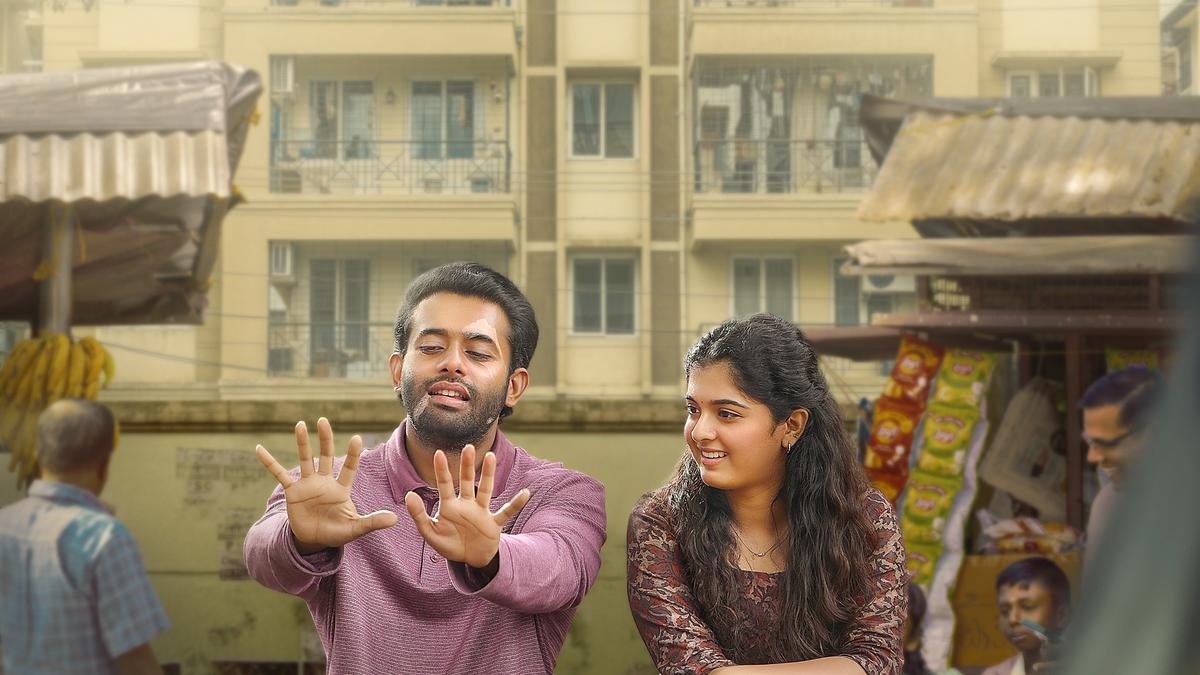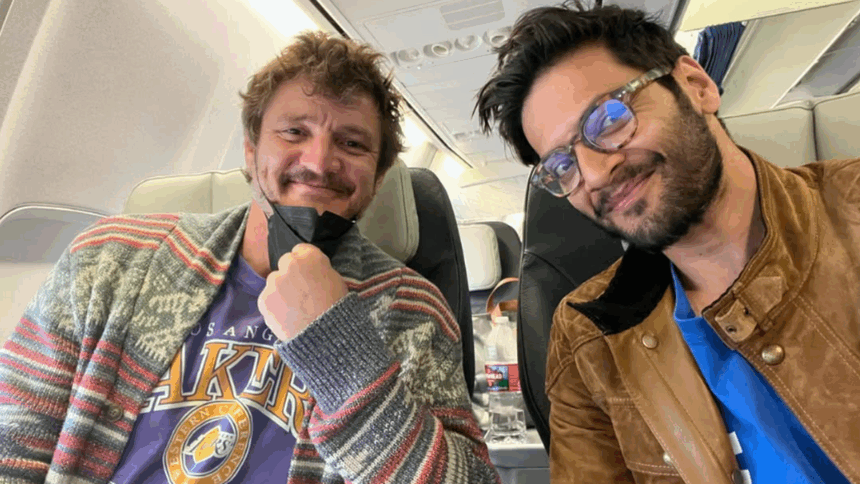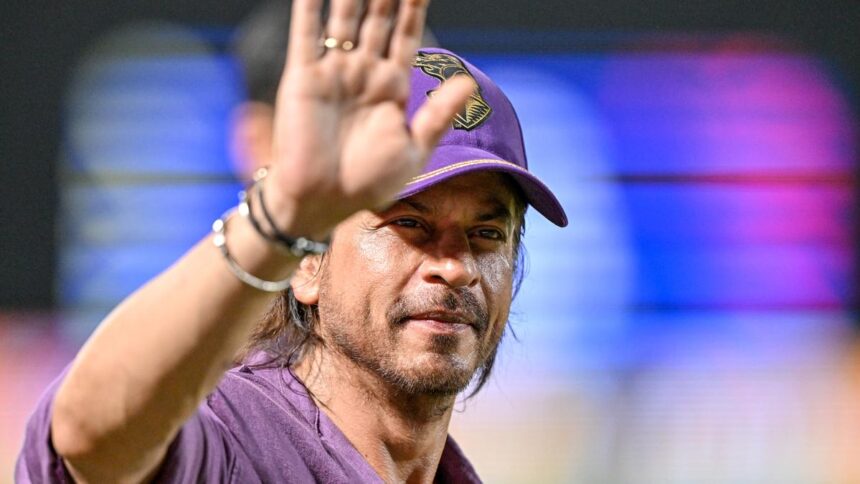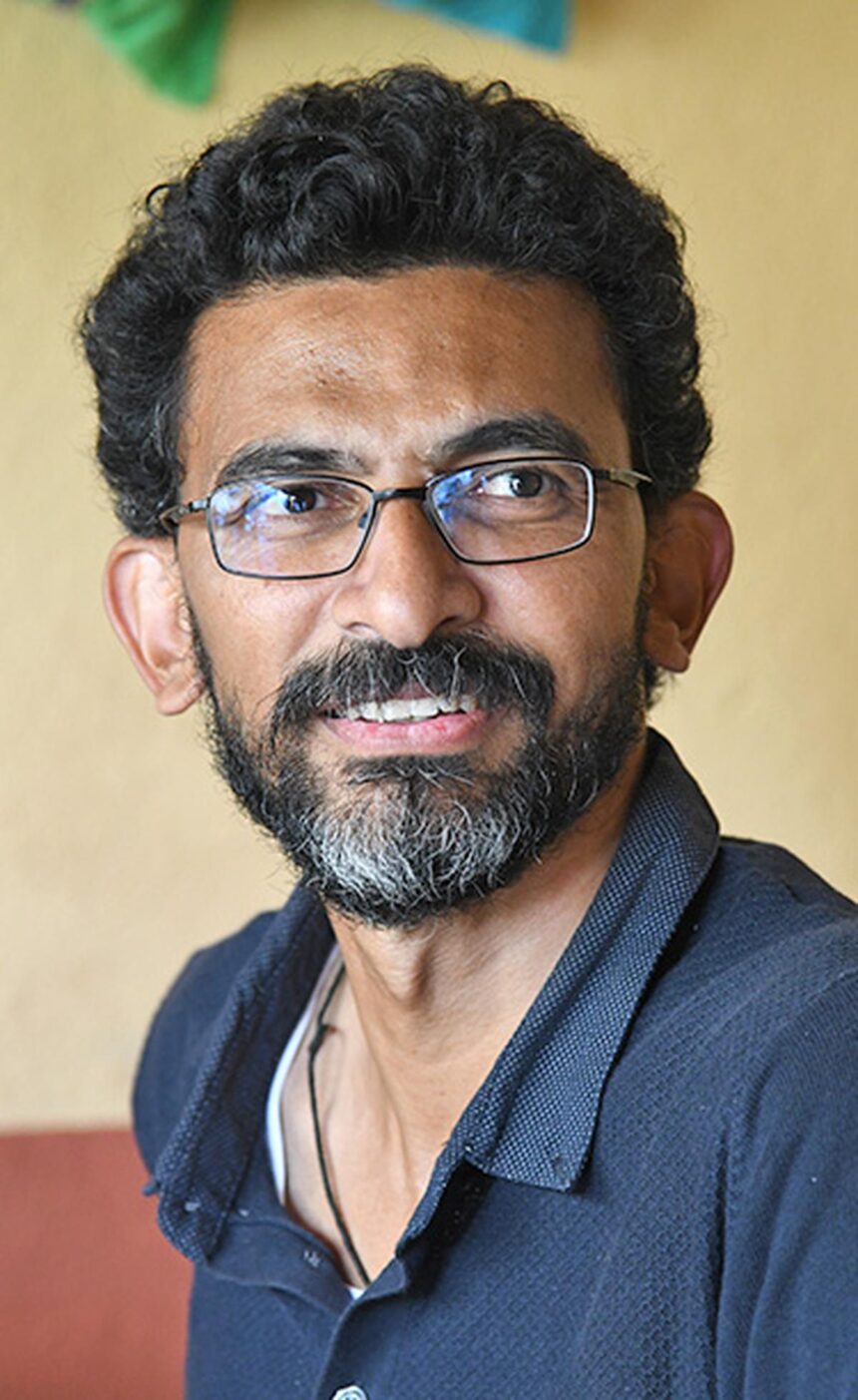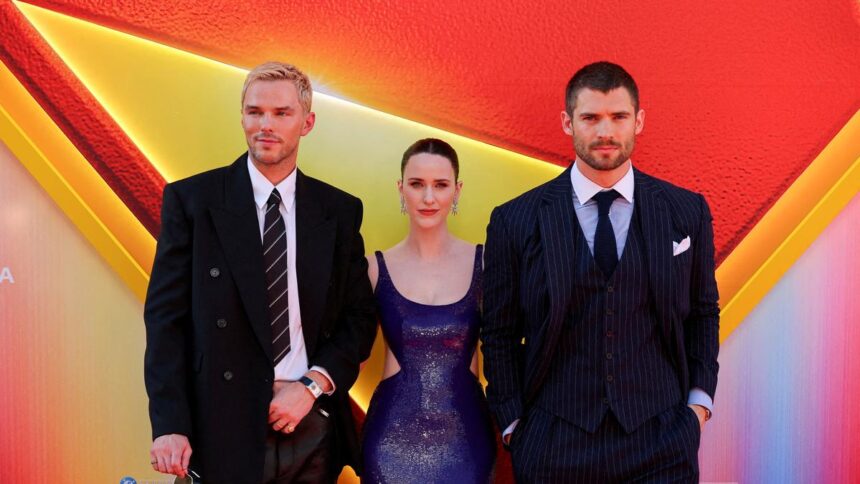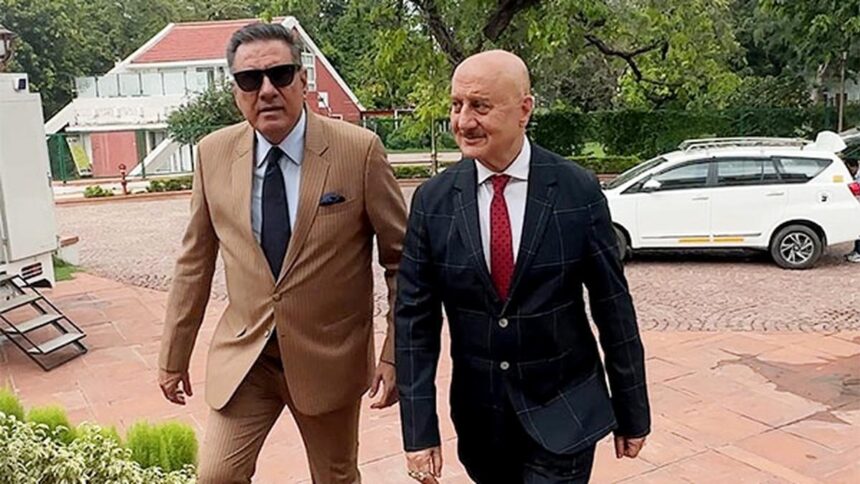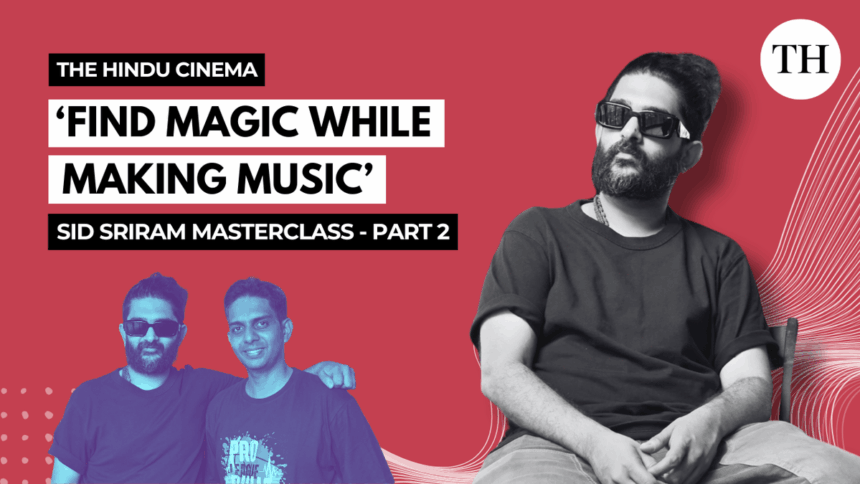Three-fourths of the way into Thalavara, one realises that we don’t know the name of Arjun Ashokan’s character. Jyothish’s childhood friends have forgotten, as they mostly call him ‘paand’ or ‘paandan’ (paand is loosely used to refer to vitiligo in Malayalam). Thalavara tugs at the heartstrings in unexpected little ways, gives hope, and, by the end of the film, leaves you a little teary-eyed. Director Akhil Anilkumar’s portrayal is sensitive and nuanced.
Yes, the story is about a person with vitiligo, but the condition is not at the centre of the story. The film is more about Jyothish and how he overcomes, or at least learns to deal with, some of the emotional baggage caused by it. His redemption arc (from self-consciousness towards self-acceptance) is engagingly portrayed.

Also, Thalavara is the story of a young man chasing the cinema dream and how vitiligo and others’ perception of it pose challenges. Because, ironically, showbiz is all about appearances, or so we think. He faces, what one assumes are, the struggles someone with his background faces — unemployment, financial troubles, and family problems — while trying to make a career in films. The messaging is that there are all kinds of people in the film industry, but, obviously, the good folks sometimes win.
Nobody in Jyothish’s life — family or friends — mentions the vitiligo overtly until push comes to shove, when their cruelty (words) comes gushing forth. Others’ awareness of it is ever-present, just like the white patches on his skin cannot be ignored. When, towards the end of the film, Jyothish asserts his desire to act in films, his mother asks him how he thinks he would make it with his condition. That is the unkindest cut, which breaks his heart. Even then, he is used to being taunted, and taking offense is a luxury.
Jyothish lives in Palakkad with his family in a low-income locality, in a house that his mother often compares to a kennel. His father, essayed brilliantly by veteran actor Ashokan, has lost all his money chasing the cinema dream. Understandably, his mother, Ashamma, a brilliant portrayal by Devadarshini, cannot tolerate another film-obsessed family member. His constants are his four friends with whom he hangs out when he is not working.
Thalavara
Director: Akhil Anilkumar
Cast: Arjun Ashokan, Ashokan, Devadarshini, Revathy Sharma
Duration: 121 minutes
Story: How a man overcomes challenges posed by vitiligo and realises his dream of becoming an actor.
The story picks up when a new tenant and her mother move into the house of one of his friends. Sandhya (Revathy Sharma), a Tamilian-Malayali, becomes the object of the preoccupation of all the friends (a la In Harihar Nagar and a bunch of other Malayalam films) except for Jyothish, because he knows he does not stand a chance because of his skin. His friends consider him ‘safe’ to be the go-between for them and Sandhya. No spoilers here about who Sandhya falls in love with! And Revathy impresses as a sassy Sandhya who knows exactly what, or rather whom, she wants.
Jyothish’s micro actions point to his self-esteem issues — his dislike of being photographed by others because he cannot manipulate the images with filters as he does with his selfies, and his full-sleeved clothing, for instance. Or how he frowns when Sandhya picks a panda plushie, perhaps, is a reminder of his condition? These details enhance the storytelling.

Jyothish is one of Arjun Ashokan’s honest performances. He reflects the quiet diffidence of someone uncomfortable with the attention he gets for his appearance. Ashokan shines as Jyothish’s cinema-obsessed father, who is kind and easy-going. The relationship between the older couple is sweet, despite Ashamma’s annoyance at her husband’s undying love of cinema.
To Akhil’s credit, he has managed to elicit the best out of his entire cast of actors. They have understood the brief and delivered honest performances. The character arc of the main characters and their journey towards transformation are well-etched.
Some of the exchanges are laugh-out-loud funny for the realism of it. For example, the look on Sandhya’s father’s face when Jyothish informs him of his intentions of becoming an actor – priceless!
Akhil Anilkumar, who co-wrote and directed Archana 31 Not Out and one of the segments in Freedom Fight, has tried to keep the narrative taut at 120-odd minutes. Certain writing/editing decisions could have kept the film tight. His co-writer on this project is Appu Aslam. Given the story, there is scope for an inclusivity sermon, but Akhil does not indulge and shows restraint. The music, composed by Electronic Kili, is soulful.
The make-up, which is inconsistent and jarring, is the only let-down in the movie. The vitiligo patches change shape and size, as does the grey patch in Jyothish’s hair. The make-up team could have spent some time researching for a better output.
But otherwise, Thalavara is a sweet film like the family dramas of the past, where the good guy eventually wins. Of course, if you are looking for deep intellectual insights into the psyche of a person with vitiligo, you are at the wrong place. A library might be a better place.
A postscript — when Manish Narayanan presents a movie, expectations are bound to be high, and Thalavara delivers.
Thalavara is currently running in theatres
Published – August 22, 2025 05:53 pm IST








